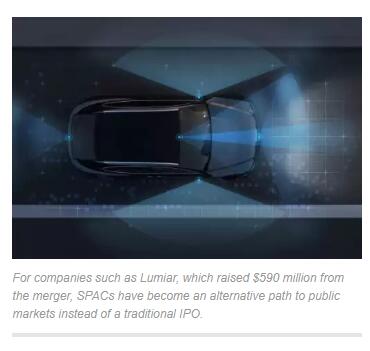

There are different settings, such as off road military usage or for industrial purposes. Be it R&D or hardware, setting up these systems is super expensive that is not viable for customers who would like to drive a mid-level sedan.įurthermore, when we talk about LiDAR systems, we cannot restrict our objectives to urban transportation. When asked if Luminar technologies market capitalisation is overvalued, Sanjeev explained how cost-intensive LiDAR systems could be. That said, setting up LiDAR systems is also not a straightforward solution. So far, there haven’t been many non-LiDAR companies that deliver on all three fronts. The success of autonomous vehicles continued Sanjeev, relies on perception, planning and localisation.

Whereas, for the camera-based cars to match the accuracy, they need customised hardware like Tesla’s in-house neural network accelerators. The level of details that LiDAR offers is of high quality. Sanjeev quickly pointed out that the major difference between LiDAR and camera-based perception systems boils down to a trade-off between accuracy and computational heavy lifting. So, to understand the state of the self-driving industry from an insider’s perspective, Analytics India Magazine got in touch with Sanjeev Sharma, founder of Swaayatt Robots. Tesla’s CEO Elon Musk even called LiDAR technology to be a fool’s errand! The more popular debate being the one about LiDAR and cameras. From hardware to algorithms, the self-driving industry has mostly been divided in their approach. But, the autonomous driving industry poses a wide range of challenges. So far, the story of Luminar looks impeccable.
LUMINAR TECHNOLOGY SOFTWARE
Starting in 2022, Luminar’s hardware and the software will be integrated into Volvo’s global vehicle platform, the foundation for their next generation of consumer vehicles. Luminar offers two flagship products - Iris and Hydra. What Does This Mean For Autonomous Industry Source: Luminar Technologies Regarding the merger, Alec Gores, CEO of Gores Metropoulos, said that Luminar represents a rare opportunity to invest in the leading player in autonomous driving technology for cars and trucks. The LiDAR services company came into light when it landed massive customers like Toyota and Volvo. Luminar is known for integrating its unique hardware innovations with a reliable software stack. On completion of the transaction, Luminar technologies will retain its management team while Austin Russell will continue to serve as the CEO. Transaction proceeds, wrote the company, will be used to accelerate commercial growth across its 50 partners and the expansion of its product roadmap for a turn-key “full-stack” highway autonomy and proactive safety ADAS solution. According to the official press release, the transaction includes $400 million of cash from Gores Metropoulos and an immediate $170 million financing into Luminar. Luminar technologies pioneers in providing both hardware and software solutions to the autonomous vehicle industry. “Eight years ago, we took on a problem to which most thought there would be no technically or commercially viable solution.” -Austin Russell, CEO Is this valuation justified, and what does Luminar’s success mean to the industry? About The Merger Today, this startup is valued at $3 billion. Austin Russell founded Luminar at the age of 17.

The company claims to have built a new type of LiDar systems from scratch that meets the safety and cost standards of level 3 to level 5 autonomy. With a market capitalisation of US $3.4 billion, this LiDAR service provider has so far partnered with 7 of the top 10 automakers in the world. On Monday, Florida-based Luminar Technologies announced that it has entered into a definitive agreement to merge with Gores Metropoulos, Inc.


 0 kommentar(er)
0 kommentar(er)
